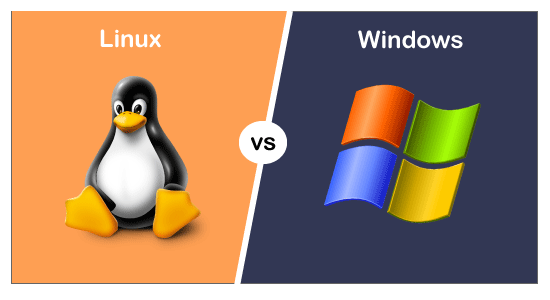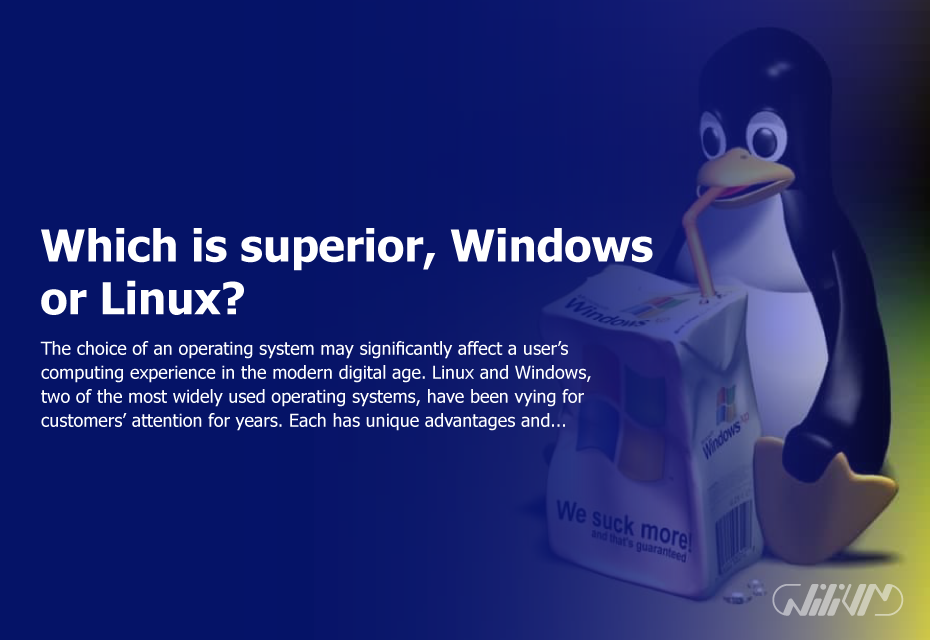Which is superior, Windows or Linux?
Contents
Which is better, Windows or Linux?

The choice of an operating system may significantly affect a user’s computing experience in the modern digital age. Linux and Windows, two of the most widely used operating systems, have been vying for customers’ attention for years. Each has unique advantages and disadvantages, therefore it’s critical for customers to comprehend their distinctions before choosing one. In order to assist readers choose wisely for their computer requirements, this article compares and contrasts the features, benefits, and drawbacks of Linux versus Windows.
Introduction
Windows and Linux have become the two main operating system competitors. An open-source operating system called Linux was developed using a collaborative process and community input. Windows, on the other hand, is a proprietary operating system that is popularly used all over the world and was created by Microsoft. Both Linux and Windows have unique features and accommodate various user needs. Let’s examine each of these operating systems in more detail to comprehend their salient features.
Introduction to Linux
Linux is recognized for being open-source, which means that the public may freely access the system’s source code, enabling developers to improve and alter it. Due to the collaborative nature of its development, a sizable user and developer community has emerged. Ubuntu, Fedora, and Debian are just a few of the many distributions (or “distros”) available for Linux, each having its own distinctive features and user interfaces.
Advantages of Linux
- Flexibility and customisation Benefits of Linux:
Linux offers customers a wide range of unmatched flexibility and customisation possibilities. The system may be customized by users to meet their unique requirements by selecting from a variety of desktop settings and themes.
- Performance & Stability:
Linux is renowned for its dependability and consistency. It is a great option for servers and important systems since it is less vulnerable to crashes and virus assaults.
- Large Software Repository:
Linux has a large software library with a variety of programs for different uses. The majority of Linux software is open-source and free to use, giving consumers access to affordable solutions.
- Security:
The strong security mechanisms included in Linux are well-known. It is said to be very safe against cyber attacks because to its robust user-based authorization mechanism and frequent security upgrades.
Disadvantages of Linux
- Learning Curve:
Linux has a longer learning curve than Windows, which is disadvantageous for users who are used to Windows, in particular. For newcomers, the command-line interface and complicated setup might be intimidating.
- Software Compatibility:
Linux has made considerable strides in terms of software compatibility, however certain proprietary applications and games may not be widely accessible or completely functional on the platform.
- Hardware Support:
Although Linux works with a broad variety of hardware, there may be certain cases when some peripherals or devices don’t have the right drivers, which might cause compatibility problems.
Summary of Windows
Microsoft’s Windows is one of the most well-known and popular operating systems in use today. It has a user-friendly interface, a wide variety of program compatibility, and features for both professional and non-professional users.
Advantages of Windows
- User-Friendly Interface:
Windows has a graphical user interface (GUI) that is recognizable and simple to use, making it simple for users to browse and complete tasks without substantial technical expertise.
- Wide-ranging Software Compatibility:
Windows has access to a huge selection of commercial and open-source programs. Users will have access to a large variety of tools and apps thanks to this comprehensive interoperability.
- Gaming Support:
Because of its broad support for well-known titles and hardware optimization, Windows has long been the platform of choice for gamers.
- Hardware Support:
Windows is built to work with a variety of hardware, making it compatible with the majority of devices and peripherals on the market.
The drawbacks of Windows
- Malware Vulnerability:
Historically, Windows has been more vulnerable to malware assaults than Linux. Windows is a desirable target for hackers due to its ubiquity and extensive use.
- System Stability:
Windows is susceptible to crashing and system instability from time to time, particularly while running resource-intensive apps or after extended usage.
- Costs associated with licensing:
Because Windows is a proprietary operating system, users must buy licenses in order to use it legally. This price might be prohibitive, particularly for consumers or organizations with tight budgets.
Windows versus Linux comparison
There are a number of things to take into account while selecting between Linux and Windows. Let’s contrast these two operating systems using a variety of criteria:
Both efficiency and stability
Although both Linux and Windows provide reliable performance, Linux often outperforms Windows in this area. Linux is often used for servers and other important systems because to its effective resource management and reliability.
User Experience and Usability
Windows excels in offering a user-friendly interface that makes it available to a variety of users, even those with little to no technical experience. More customization choices are available with Linux, although there may be a learning curve for new users.
Compatibility with software
Because of Windows’ great program compatibility, a variety of applications, including paid software, are available. Despite making progress in this area, Linux may still run into issues with certain proprietary programs or games.
Security
Linux is naturally more secure than Windows due to its open-source nature and robust security measures. But throughout the years, Windows has significantly strengthened its security.
Flexibility and Personalization
When it comes to freedom and personalization, Linux excels. By selecting from a variety of desktop environments, themes, and software choices, users are able to customize the system to suit their tastes. In this way, Windows provides less freedom.
Cost
Linux’s affordability is one of its most important benefits. The majority of Linux distributions are open-source and free, giving users access to a wide variety of applications without paying any license costs. Windows, however, has to be licensed, which costs money.
Conclusion
There is no clear winner when it comes to the Linux vs. Windows debate. The final decision is determined by the user’s particular requirements, preferences, and degree of technical competence. While Windows has a user-friendly interface, broad program compatibility, and gaming support, Linux excels in terms of flexibility, customisation, and security. Before choosing an operating system, users must assess their needs and analyze the advantages and disadvantages of each.
FAQs
Can I use Linux to run Windows software?
Although Linux has made strides in terms of software compatibility, certain proprietary Windows applications may not be easily accessible or completely interoperable. Alternatives and compatibility layers, like Wine, may enable certain Windows apps operate on Linux, however.
Is Linux safer than Windows?
Due to its open-source nature, robust user-based permission architecture, and frequent security upgrades, Linux is regarded as being more secure than Windows. Both operating systems have, however, made security features improvements over time.
Can I play games on Linux?
Gaming on Linux has grown in popularity, and the number of games available on the system is expanding. Windows still provides more game compatibility and optimization, however.
Is Linux really unrestricted?
The majority of Linux distributions are open-source and free, allowing users to use, modify, and share the software without paying any license costs. However, some distributions with an enterprise emphasis may charge a membership fee or maintenance costs.







